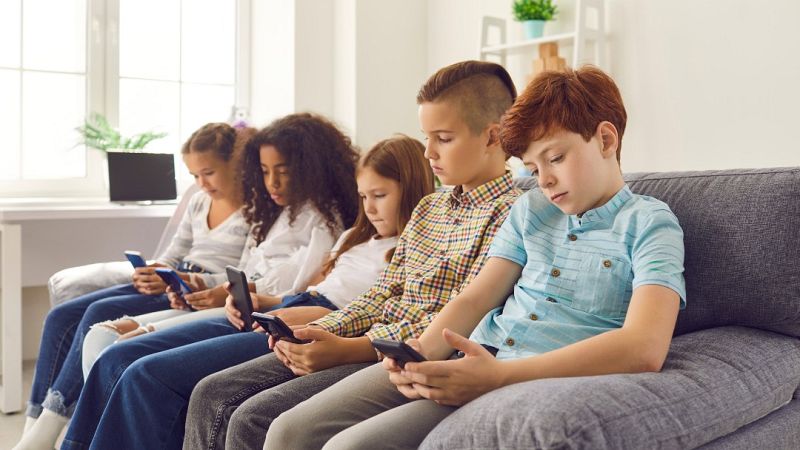
Children shouldn’t have access to smartphones until the age of 13, according to a new global study.
Those who used smartphones before they turned 13 were more likely to have suicidal thoughts, bad emotional regulation, lower self-worth, aggression, and detachment from reality, according to the study published in the Journal of the Human Development and Capabilities.
Girls were more impacted by smartphone use than boys, with 9.5 per cent of female respondents considered “struggling” with their mental health compared to 7 per cent of males, irrespective of their country of origin, the research added.
Kids under 13 were more likely to experience sleep disruptions, cyberbullying and negative family relationships, the study found.
Restrict smartphones like alcohol, researchers say
The study drew data from the self-reported mental health profiles of 100,000 young people between the ages of 18-24.
The study was conducted by a team from the research non-profit Sapien Labs.
The researchers generated an overall "mind health" score for each profile based on 47 social, emotional, cognitive, and physical functions.
The mind health scores got worse the longer a child had access to a smartphone, the research continued.
For example, the score of a child who received a phone at 13 dropped from 30 to just one for those who received a phone at five years old.
The results were worse for the 18-20 year-olds than the 21-24 cohort in the responses, which could be due to prolonged screen exposure during the COVID-19 pandemic, the study said.
However, the results of smartphone use in under 13s are consistent despite the geographical and social differences that kids have.
Lead author Tara Thiagarajan said she’d like to see smartphones restricted to those under 13 and regulated like alcohol and tobacco by government authorities. The move should be paired with restrictions on social media platforms as well as “mandating digital literacy education and enforcing corporate accountability”.
“I was initially surprised by how strong the results are,” Thiagarajan said.
“However, when you give it due consideration, it does begin to make sense that the younger developing mind is more compromised by the online environment, given their vulnerability and lack of worldly experience”.
What regulations are already in place against cellphones?
Most of the bans so far against cellphones are happening in Europe’s schools, with partial bans in French, Dutch, British, Italian, Hungarian, Spanish, Irish, Swedish, Belgian, Greek, Latvian, Luxembourgish and Finnish classrooms.
Some of these countries, including France, the Netherlands, Italy, Luxembourg and some Spanish regions, have complete school-wide bans on mobile phones so they cannot be used at any point during the day.
Other European countries, such as Denmark, Cyprus, Bulgaria, and Portugal, are also considering further restrictions on cellphones.
For social media, France’s artificial intelligence (AI) minister also proposed a European-wide ban on the use of social media for those under 15 years old.
Several EU laws, such as the Digital Service Act, the Audiovisual Media Services Directive, and the General Data Protection Regulation, include provisions to shield children from harmful content and protect their data.
Last month, EU lawmakers voted to criminalise AI-generated child abuse images, online grooming, livestreaming, sextortion and the age of consent.







